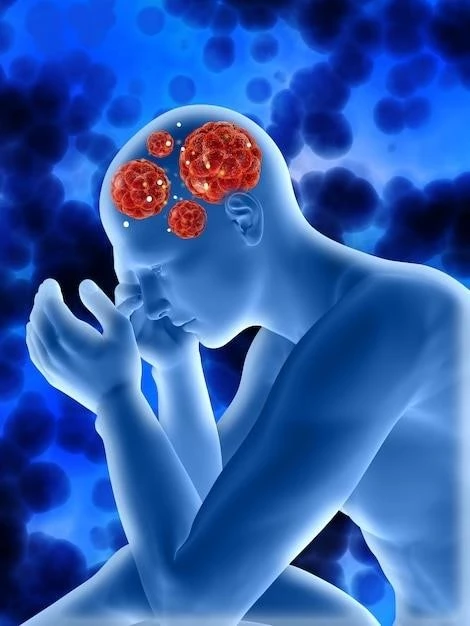Introduction to Cerebroretinal Vasculopathy
Cerebroretinal Vasculopathy is a rare genetic disorder affecting blood vessels․ The exact causes are not fully understood but are believed to involve genetic mutations․
Causes of Cerebroretinal Vasculopathy
Cerebroretinal Vasculopathy is primarily caused by genetic mutations that affect the blood vessels in the brain and retina․ These mutations can lead to abnormal vessel formation, affecting blood flow and causing damage to tissues․ Research suggests that these genetic mutations disrupt the normal development and function of blood vessels, predisposing individuals to this condition․ While the exact triggers for these mutations are not fully understood, there may be a combination of genetic and environmental factors that contribute to the development of Cerebroretinal Vasculopathy․ Further studies are ongoing to gain a deeper understanding of the precise mechanisms involved in the onset of this rare disorder․
Symptoms and Diagnosis of Cerebroretinal Vasculopathy
Cerebroretinal Vasculopathy manifests with symptoms such as vision changes and neurological issues․ Diagnosis involves imaging tests and genetic analysis for accurate identification․
Common Symptoms of Cerebroretinal Vasculopathy
Common symptoms of Cerebroretinal Vasculopathy include vision problems like vision loss, retinal hemorrhages, and retinal telangiectasia․ Neurological symptoms may include headaches, seizures, and cognitive impairments․ Individuals with this condition may also experience strokes or transient ischemic attacks․ It is essential to consult with a healthcare professional for a comprehensive evaluation if these symptoms are present, as early diagnosis is crucial for optimal management and treatment․
Diagnostic Procedures for Cerebroretinal Vasculopathy
Diagnostic procedures for Cerebroretinal Vasculopathy typically involve a combination of imaging tests such as MRI or CT scans to assess the blood vessels in the brain and retina․ Additionally, genetic testing may be conducted to identify specific mutations associated with this condition․ Ophthalmic evaluations, including funduscopy and optical coherence tomography, can help assess retinal abnormalities․ Neurological assessments and blood tests may also be performed to evaluate overall health and rule out other possible conditions․ A comprehensive diagnostic approach is essential for accurate identification and management of Cerebroretinal Vasculopathy․
Treatment Options for Cerebroretinal Vasculopathy
Treatment for Cerebroretinal Vasculopathy aims to manage symptoms and prevent complications․ This may include medication to control blood pressure, anti-VEGF injections to address retinal issues, and antiplatelet therapy to reduce the risk of stroke․ Surgical interventions like laser therapy or vitrectomy may be considered for specific cases․ Additionally, lifestyle modifications such as maintaining a healthy diet, regular exercise, and avoiding smoking are essential components of managing this condition․ Close monitoring by healthcare providers is vital to tailor treatment plans to individual needs and optimize outcomes․

Understanding the Link Between Genetics and Cerebroretinal Vasculopathy
The link between genetics and Cerebroretinal Vasculopathy is significant, with specific genetic mutations playing a key role in the development of this condition․ Mutations in genes associated with blood vessel formation and maintenance can lead to abnormalities in the brain and retina, contributing to the characteristic symptoms of Cerebroretinal Vasculopathy․ Understanding the genetic basis of this disorder is essential for targeted therapies and personalized treatment strategies․ Ongoing research is focused on unraveling the genetic pathways involved and identifying potential therapeutic targets to improve outcomes for individuals affected by Cerebroretinal Vasculopathy․
Lifestyle Modifications for Managing Cerebroretinal Vasculopathy
Lifestyle modifications play a crucial role in managing Cerebroretinal Vasculopathy․ Adopting a heart-healthy diet rich in fruits, vegetables, and whole grains can support vascular health․ Regular physical activity and weight management are vital in reducing the risk of complications․ Avoiding tobacco and excessive alcohol consumption is essential to maintain overall well-being․ Managing stress through relaxation techniques and adequate sleep can also benefit individuals with Cerebroretinal Vasculopathy․ Consultation with healthcare providers and specialists can help tailor lifestyle recommendations to individual needs and promote better outcomes in managing this condition․
Research Advances in Cerebroretinal Vasculopathy
Ongoing research in Cerebroretinal Vasculopathy is focused on understanding the underlying genetic mechanisms, exploring new treatment modalities, and identifying potential biomarkers for early detection․ Advances in imaging technologies are enhancing the ability to visualize vascular changes in the brain and retina․ Studies investigating the role of inflammation and immune response in Cerebroretinal Vasculopathy are opening new avenues for therapeutic interventions․ Collaborative efforts between researchers, healthcare professionals, and patient advocacy groups are driving progress in expanding knowledge about this rare disorder․ Continued research efforts are crucial for developing targeted therapies and improving outcomes for individuals affected by Cerebroretinal Vasculopathy․
Complications Associated with Cerebroretinal Vasculopathy
Cerebroretinal Vasculopathy can lead to various complications, including vision loss, recurrent strokes, cognitive decline, and neurological impairments․ Retinal hemorrhages and telangiectasia may result in visual disturbances, while abnormal blood vessel formation in the brain can increase the risk of ischemic events․ Individuals with Cerebroretinal Vasculopathy may also experience symptoms such as seizures, migraines, and motor deficits․ Timely diagnosis and appropriate management are essential to minimize the impact of these complications on quality of life․ Regular monitoring by healthcare professionals can help address potential issues promptly and improve outcomes for individuals affected by this condition․
Support and Resources for Individuals with Cerebroretinal Vasculopathy
Individuals with Cerebroretinal Vasculopathy can benefit from a range of support and resources to cope with the challenges posed by the condition․ Patient advocacy groups offer valuable information, community support, and access to educational materials․ Healthcare professionals, including neurologists, ophthalmologists, and genetic counselors, play a crucial role in providing tailored care and guidance․ Supportive services such as counseling, rehabilitation programs, and social work assistance can help individuals and their families navigate the physical, emotional, and practical aspects of living with Cerebroretinal Vasculopathy․ Participation in clinical trials and research initiatives can also provide opportunities for exploring new treatment options and contributing to advancements in the field․
